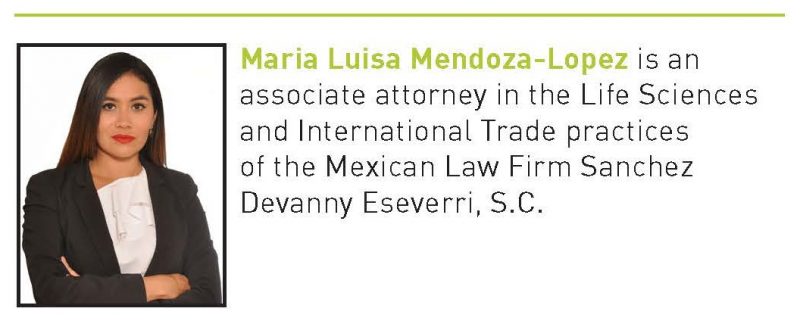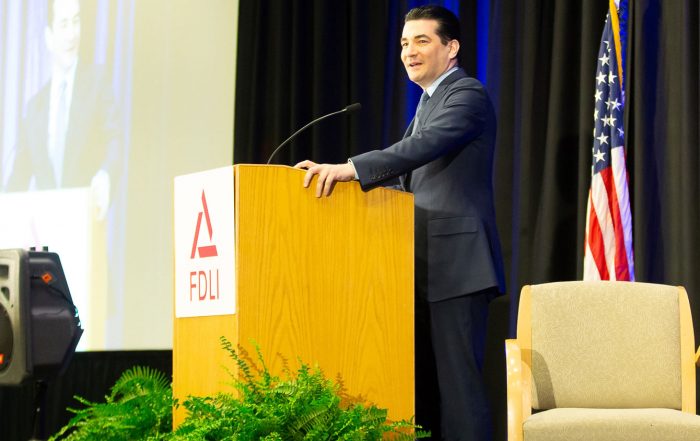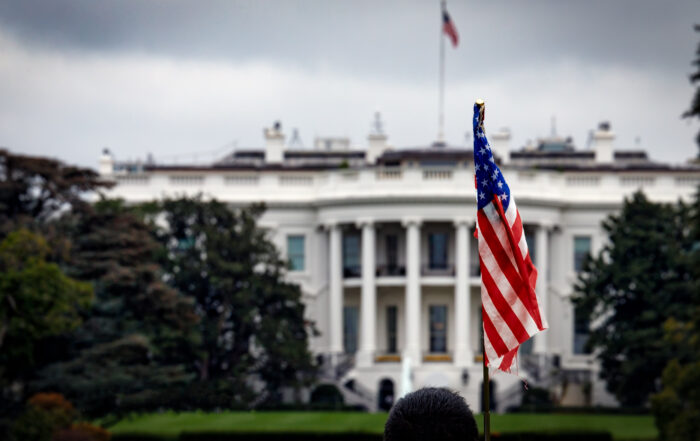
Global Focus
Reasonableness and Food Advertising: A View from Mexico
by Maria Luisa Mendoza-Lopez
Introduction
Last December the Food and Drug Law Institute (FDLI) hosted the Enforcement, Litigation, and Compliance Conference for the Drug, Device, Food, and Tobacco Industries in Washington, DC. One of the key topics of discussion was First Amendment jurisprudence as it applies to food and beverage labeling and advertising.
The panel addressed the line of cases in which U.S. courts analyzed the scope of the First Amendment’s protection of speech and the implications for food and beverage labeling and advertising. U.S. jurisprudence weighs the need for consumer protection in the context of the speech rights of product manufacturers. 1
As an attorney licensed and practicing in Mexico, this presentation caught my attention since the Mexican approach to labeling and advertising regulations is highly restrictive. Unlike the U.S. standard, which factors First Amendment considerations into permissible limitations on advertising and labeling, Mexican regulations are based solely on the rationale that broad restrictions are necessary to protect human life and health. The assumptions deployed in this scheme can lead to administrative decisions that may not be anticipated by most product manufacturers. Sometimes the interpretations of the rules even reach the point of seriously underestimating consumers’ common sense.
Freedom of Speech
Mexico’s closest analogue to the U.S. Constitution’s First Amendment free speech provision is Article 6 of the Mexican Federal Constitution, which establishes that “[t]he expression of ideas shall not be subject to any judicial or administrative investigation, unless it offends good morals, infringes the rights of others, incites to crime, or disturbs the public order.” This provision affirms the right to disseminate information and ideas of all kinds.
From a simple reading of both provisions, it seems that individuals are entitled to express themselves in any manner whatsoever, but in Mexico, the Constitution expressly limits this freedom so that it can be subject to review by the relevant authorities to protect government interests such as “good morals…and the public order.”2
For food and beverage labeling and advertising, public health is considered a valid reason to establish limits to the exercise of the freedom of speech. Public health for these purposes is understood as the protection of the physical and mental welfare of humans through the prevention, control, and eradication of health-related nutritional issues.
Mexican Labeling Requirements
In Mexico, the General Health Law, Article 25 of the Products and Services Health Control Regulations, the Mexican Official Standard “NOM-051-SSA1/SCFI-2010, General labeling specifications for prepackaged food and beverages-Commercial and health information” (NOM-051) and its Guidelines, regulate labeling of prepackaged food and beverages, the last two being the most important for practical purposes.
Among the most relevant (yet ambiguous) requirements established under NOM-051 is that all information declared on the label must be true and must be described and presented in such manner that it shall not be misleading for consumers in relation to the product’s nature and features.
The key words in this provision seem to lend themselves to as far-reaching interpretations as the authorities can imagine, or at least this is how the health and consumer protection authorities in Mexico have understood it.
Unfortunately, the Mexican authorities have decided that this requirement is so absolute as to preclude any non-literal interpretation, even to the point of exaggerating its application without any consideration for consumer common sense.
To illustrate the strict and sometimes absurd application of the law by the Mexican authorities, below are some examples based on cases our firm has seen:
- Case 1: advertising claims related to the urge to consume the product, such as declaring that it is “too tempting to be resisted,” were considered to be misleading declarations by the health authorities. The rationale for this finding was that consumers are actually able to control themselves and the urge to consume a product, and that this type of exaggeration could lead a person to believe that it would be impossible to resist consuming it.
- Case 2: claims declaring “the quality of a product is the best on your table” were considered to be deceiving to consumers by the consumer protection authorities. This claim was viewed as deceptive because the consumer could be wrongfully inclined to believe that the product was in fact the best product ever manufactured on Earth and such expectation was unrealistic.
- Case 3: using cartoon images of a fruit or vegetable in products that are both artificially and naturally flavored could be misleading for consumers; these same products expressly declare “fruit/vegetable flavor” or “artificially/naturally flavored” in the main exhibit area of the label as required by NOM-051.
According to the health authorities, a cartoon image could give the impression that the product is made of the actual fruit or vegetable instead of just being the flavor, despite the clear labeling.
For a U.S. reader, the unreasonable criteria for “misleading” or “deceptive” enforced by the Mexican authorities is most likely confusing. U.S. law generally recognizes that advertising “puffery,” hyperbolic statements that no reasonable person would believe to be true, are generally, and within reason not considered to be false advertising.
I am inclined to prefer the U.S. standard. As a lawyer, I consider the Mexican interpretation of misleading or deceptive advertising standards to be unreasonable and unjustifiable, since there is no health risk arising from any of the claims or images outlined above; and as a consumer I feel insulted by the lack of regard paid to consumers’ capacity to understand hyperbole in advertising.
Thus, there is no recourse in Mexican law to consideration of how a “reasonable consumer” might interpret product representations. The resulting decisions would seemingly flunk the least stringent standard of review applied by U.S. courts in cases involving compelled speech (never mind the higher standard relevant to assessing the truthfulness of claims) in that there is no “reasonable relationship” between the regulation (or in these instances its enforcement) and its objective. No doubt, it would be preferable for Mexican law, in enforcing the regulations concerning labeling requirements, to be limited in a reasonable manner to achieve the protection of the physical and mental welfare of humans as they relate to nutritional health issues.
Unfortunately, although judicial review of administrative decisions may be available in some instances, it is highly unlikely that product manufacturers will find prompt relief in the Mexican courts. Most judges do not have the technical knowledge of food and beverages labeling and advertising provisions necessary to establish a reasonable limit to the criteria being enforced by the administrative authorities.
Implementing these kinds of standards has great relevance, since food and beverage companies often prepare their marketing and advertising strategies on a global or regional basis. Making modifications based on local administrative criteria that risk absurd outcomes may prove to be an obstacle or disincentive to invest in the Mexican market.
Companies seeking to enter the Mexican market need to be aware of how to prevent unpleasant and burdensome encounters with the Mexican health or consumer protection authorities that could result in the modification of labels and advertising material, in the imposition of administrative fines and, in the worst-case, to a suspension of a product’s commercialization.
Thus, companies should plan to run a preliminary review of food and beverage labels and advertising material prior to launching any campaign in Mexico.
- This panel focused on the rational basis standard applied to compelled speech that was established in Zauderer v. Office of Disc. Counsel, 471 U.S. 626 (1985) and applied to New York State Restaurant Assoc. v. New York State Board of Health, (2d Cir. 2009).
- Translation from Organization of American States (OAS), https://www.oas.org/juridico/mla/en/mex/en_mex-int-text-const.pdf.
Programs
Update Magazine
June/July 2018













